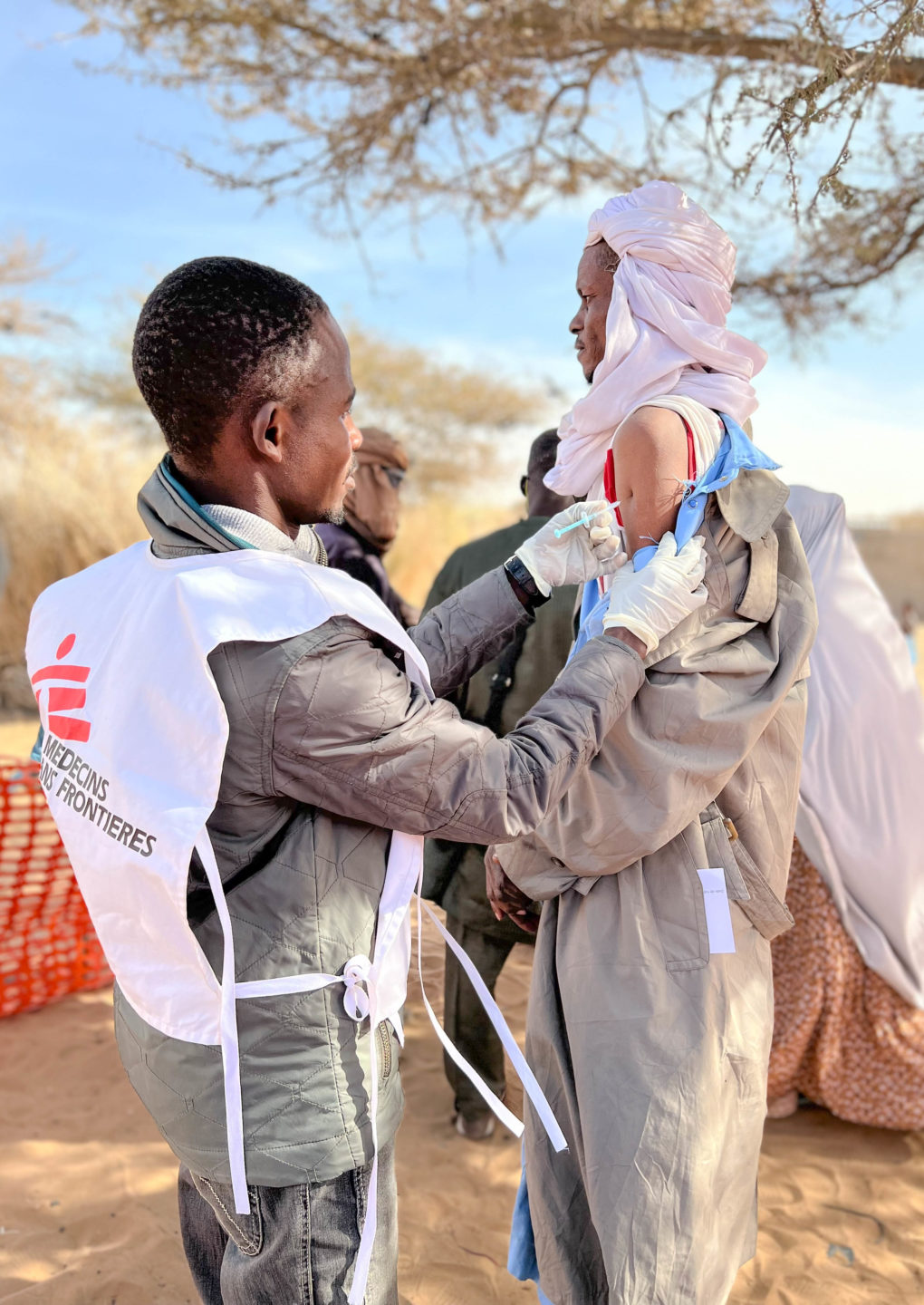Since 30 July, the Economic Community of West African States (ECOWAS) has imposed a series of sanctions against Niger: commercial and financial transactions have been suspended, the country’s air traffic has been disrupted and the borders with Benin and Nigeria remain officially closed following the recent coup d’état. As a result, the country’s trade links with neighbouring countries have been hindered by borders closing and reopening, and some supply routes are blocked, preventing for instance the delivery of essential medical material. Humanitarian aid has also come to a standstill and to date has not been granted any exemption despite an appeal from the United Nations.
Médecins Sans Frontières (MSF), which has been present in Niger since 1985, fears that the current situation will exacerbate the nutritional crisis and the lack of access to healthcare in the country, affecting the most vulnerable populations first and foremost. With the rainy season also underway, cases of malaria are multiplying, and teams are facing a diphtheria outbreak in the regions bordering Nigeria.
A precarious hunger gap
Food security has long been a key policy area for Sahelian societies. In Niger, the governments in place have historically had to prove their ability to manage shortages. When the country’s first president, Hamani Diori, was unable to stem the famine of 1973-1974, he became the target of a military coup. The country is extremely vulnerable to food insecurity, and the shortages already caused by the embargo that followed the military putsch will only exacerbate an already precarious situation.
What’s more, we are currently in the middle of what is known as the hunger gap, with Niger’s agricultural production only able to cover the population’s needs for seven months. In a recent briefing, the World Food Programme pointed out that more than three million people, or 13 per cent of the population, were severely food insecure before the putsch. In the so-called tri-border region (Mali, Burkina Faso, Niger), but also in the Lake Chad basin, we have seen movements in the population for a long time, mainly due to chronic insecurity. Unfortunately, all these factors contribute to further weakening communities already suffering from an unstable environment.
Are embargoes an effective measure?
In recent years, sanctions have increasingly been imposed following a series of coups d’état in the Sahel region (Burkina Faso, Mali and Guinea), notably travel bans and the freezing of bank assets. However, it is important to distinguish targeted measures aimed at a government, for example, and more general measures that apply to a state as a whole, as in the case of Niger.
Economic sanctions emerged in Europe at the end of the 19th century, at a time when trade between states was booming. After the First World War, they became a way of trying to prevent the outbreak of new conflicts by brandishing the threat of a total embargo. Nowadays, these decisions are sometimes taken outside the UN framework, on a government’s initiative, for example, often in line with the economic interests of their instigators.
While it is difficult to assess the effectiveness of such practices from a political point of view, recent research agrees that global measures tend not to be very effective, while strong sanction measures can lead to circumvention strategies such as the development of black markets. Gradual sanctions linked to clear objectives could be relevant, but in all cases, they put a heavy price on the civilian populations concerned.
Dire consequences
The embargoes imposed on Haiti and Iraq in the early 1990s, in particular, have given rise to an abundance of literature highlighting the disastrous repercussions they have had on the population, especially in terms of depleting food resources and deteriorating the social fabric and health systems and, more generally, the economic infrastructure.
Although the situation in Niger is significantly different, the speed of ECOWAS’s decision did not allow non-governmental and international organisations to take preventive action, including pre-positioning aid in anticipation of a future crisis.
At present, power cuts in health centres, shortages of therapeutic nutritional products and the depletion of stocks of vaccines and treatments for chronic diseases are causing fears of dramatic health consequences for the country. In Magaria, a town in the south of Niger, our teams are currently recording an infant hospital mortality rate of over seven per cent per week in the paediatric and nutrition departments, while almost 400 people have been admitted with suspected diphtheria in the country. Furthermore, the scarcity of foodstuffs is also likely to lead to a soar in market prices in the short term, destabilising an already tenuous balance.
As a result, we are asking ECOWAS for an exemption for humanitarian organisations, instead of collective sanctions, so that we can continue to provide vital aid to the people of Niger. As the country remains exposed to a range of epidemic risks, we must not relent in our efforts to protect the most vulnerable.
Post-publication notice (22 September 2023): Despite ECOWAS finally responding favorably to the UN’s request to allow humanitarian convoys to pass between Benin, Togo and Nigeria, trucks are still blocked between Benin and Niger due to diplomatic tensions between the two countries, preventing essential foodstuffs from reaching Diffa, Maradi, Tahoua, Zinder and Niamey.
This article was originally published in Geneva Solutions on 20 September 2023.
